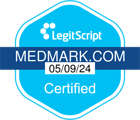Beginning a recovery journey is a challenging and courageous path, with successes, setbacks, and the potential for relapse along the way. Relapse can be a painful and discouraging experience that can shatter the sense of progress and achievement you worked so hard to build during recovery.
But when figuring out how to handle a relapse, there are two things you need to know. First, it’s important to remember that relapse doesn’t define your worth or strength and doesn’t mean failure. Second, you’re not alone. In fact, studies show that more than 85% of people struggling with addiction experience a relapse within a year of treatment.
As you learn how to handle a relapse, it’s essential to see the relapse as a setback and a reminder that recovery is a lifelong journey. Today, we’ll provide more information about handling a relapse, including the stages of relapse, its causes, and what to do after a relapse.
What is Considered a Relapse in Addiction?
In the context of addiction, relapse refers to using a substance again after a period where you either abstained from using or you managed your addiction with medication. Relapses can vary in intensity and duration and can even be accidental.
Different Types of Relapses: Traditional vs. Freelapse
Traditional Relapse
If you consciously decided to use a substance after successfully managing your addiction, you’ve experienced a traditional relapse. These types of relapses are the most common—but remember: it doesn’t mean you’ve failed in your recovery journey.
Freelapse
A “freelapse” is a term used for an accidental relapse. If you unintentionally used a substance, you’ve experienced a freelapse. For example, this could occur if you were given a drink at a family gathering that you mistakenly thought was non-alcoholic.
The 3 Stages of a Relapse
To learn how to handle a relapse or prevent one, you must understand the relapse process. Outside of a freelapse, traditional relapses aren’t usually sudden events. Generally, relapse is a process occurring over weeks or months.
1. Emotional
You may not necessarily be thinking about using a substance at this stage. Still, your emotions may put you at a higher risk of use. For example, a risk could occur if you struggle with co-occurring mental health challenges, like depression or anxiety.
2. Mental
At the mental stage of relapse, you’re actively thinking about using a substance. Or, you may be longing for places and people associated with your previous substance use.
3. Physical
A physical relapse is when the thoughts and feelings you experience turn to action. This final stage of the relapse process is the active use of a substance.
What Causes Relapses in Opioid Addiction Recovery?
There are many causes of relapse in opioid addiction recovery, including:
Mental Health Conditions
Co-occurring mental health disorders, like depression, anxiety, and post-traumatic stress disorder (PTSD), can increase the risk of relapse. Some people in recovery use substances to ease painful symptoms they experience from mental health conditions.
Chronic Illnesses or Pain
Like mental health conditions, chronic pain or illnesses can increase the risk of relapse as people turn to substances to manage their symptoms.
Intense Cravings
Substance use and dependency produce intense cravings, making the cycle of addiction difficult to break. While these cravings lessen with time, they can arise unexpectedly and be challenging to overcome.
Situational Conditions
Certain places, people, and situations increase the risk of relapse. Examples of high-risk situations include friends or loved ones who encourage you to use a substance or who are associated with a substance you used previously.

5 Strategies to Manage Your Relapse
Learning how to handle a relapse will help you get back on the road to recovery. Here are five strategies you can use to manage your relapse.
1. Reach Out for Help and Support
After a relapse, it’s essential to reach out for support and surround yourself with compassionate family, friends, and professionals who understand addiction and recovery. While learning how to tell someone you relapsed can be challenging, professionals can help teach you how to have these discussions. Seeking help at a treatment center can also get you back to your recovery.
2. Reduce Commitments and Focus on Recovery
Too much stress can leave you feeling overwhelmed, burned out, and at a higher risk of future relapses. After a relapse, it’s important to lighten your load as much as possible. Take on only what you can handle, and concentrate on your recovery.
3. Attend Support Group Meetings
If you’ve never been to a support group meeting or your attendance has been slipping lately, now is an excellent time to step up your participation and create or strengthen your support network.
4. Show Yourself Compassion
Replacing feelings of shame or self-judgment with self-compassion and understanding is essential. By showing yourself kindness, you can become more resilient and develop effective ways to move forward, ultimately regaining hope and healing.
5. Focus on Your Needs
While it’s always vital to listen to your body’s needs and care for yourself, it’s more important than ever after a relapse. If you properly fuel your body and mind, you’ll prepare yourself to handle urges to use and keep yourself from high-risk situations. In addition, if you suffer from mental or physical health conditions, you should also address them to improve your overall health.
MedMark Can Help
The biggest takeaway when learning how to handle a relapse is that you can overcome it. Recognizing that addiction is a chronic condition that can lead to relapse allows you to embrace relapse as an opportunity for learning, growth, and recommitment to recovery. You’re not alone, and MedMark can help you overcome a relapse, teach you how to tell someone you relapsed, develop coping strategies for the future, and get back on the road to recovery. Find a treatment center near you and let our caring professionals help you achieve a life free from addiction.




